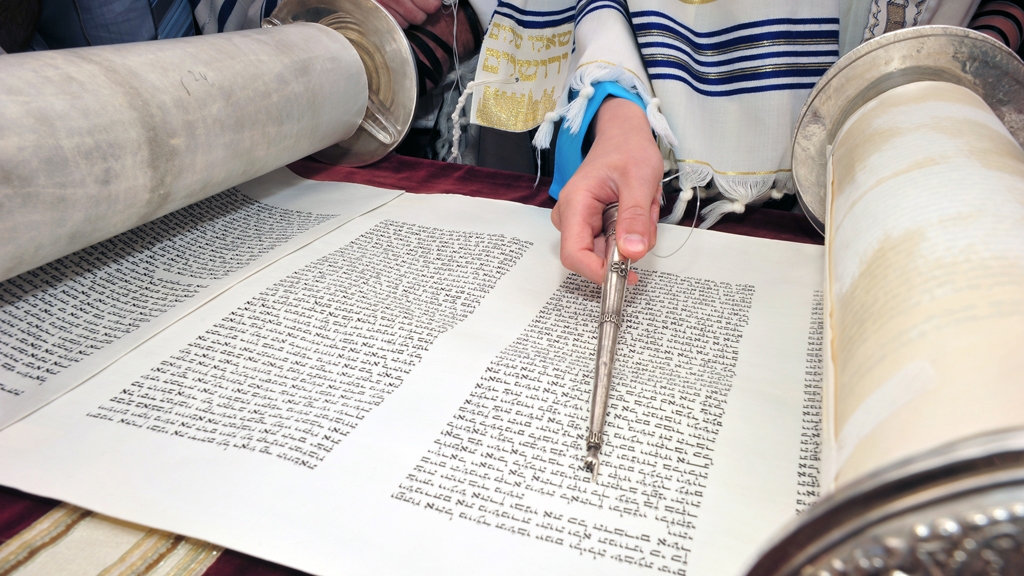Commentary on Parashat Kedoshim, Leviticus 19:1-20:27
The Lord has just told Moses to tell the Israelites about the law commanding an annual Day of Atonement and sexual prohibitions. The Lord told Moses, Speak to the whole Israelite community and say to them:
You shall be holy, for I, the Lord your God, am holy. You shall each revere your mother and your father, and keep My Sabbaths. Do not turn to idols or make molten gods for yourselves. I, the Lord, am your God.
When you reap the harvest of your land, you shall not reap all the way to the edges of your field, or gather the gleanings of your harvest. You shall not pick your vineyard bare. You shall leave them for the poor and the stranger: I the Lord am your God.
You shall not steal, and you shall not deal deceitfully or falsely with one another. You shall not swear falsely by My name, profaning the name of your God. I am the Lord.

Help us keep Jewish knowledge accessible to millions of people around the world.
Your donation to My Jewish Learning fuels endless journeys of Jewish discovery. With your help, My Jewish Learning can continue to provide nonstop opportunities for learning, connection and growth.
You shall not coerce your neighbor. You shall not commit robbery.
You shall not insult the deaf or place a stumbling block before the blind. You shall fear your God: I am the Lord.
You shall not render an unfair decision: do not favor the poor or show deference to the rich: judge your neighbor fairly.
You shall not hate your kinsman in your heart. You shall not take vengeance or bear a grudge against your kinfolk. Love your neighbor’s welfare as if it were your own. I am the Lord.
You shall observe My laws. You shall not let your cattle mate with a different kind of animal; you shall not sow your field with two kinds of seed; you shall not put on cloth from a mixture of two kinds of material.
When you enter the land and plant any tree for food, you shall regard its fruit as forbidden for three years, but in the fourth year all its fruit shall be set aside for jubilation before the Lord. Then in the fifth year you may use its fruit–that its yield to you may be increased: I, the Lord, am your God.
You shall not eat anything with its blood. You shall not practice divination or soothsaying. You shall not make gashes in your flesh for the dead or incise any marks on yourselves: I am the Lord.
You shall keep My Sabbath and honor My sanctuary. I am the Lord.
Do not turn to ghosts and do not inquire of familiar spirits to be defiled by them: I, the Lord, am your God.
You shall rise before the aged and show deference to the old: you shall fear your God: I am the Lord.
When a stranger resides with you in your land, you shall not wrong him. The stranger who resides with you shall be to you as one of your citizens; you shall love him as yourself, for you were strangers in the land of Egypt. I, the Lord, am your God.
You shall not falsify measures of length, weight, or capacity. You shall have an honest balance, honest weights. You shall faithfully observe all My laws and all My norms. I am the Lord.
No man shall offer his children to the idol Molech for that shall profane My holy name. Nor shall you commit adultery or incest or mate with beasts.
You shall sanctify yourselves and be holy. You shall faithfully observe My laws. I, the Lord, make you holy.
You shall not follow the practices of the nations that I am driving out of the promised land. For it is because they did all these things that I abhorred them and said to you, “You shall possess their land, for I will give it to you to possess, a land flowing with milk and honey.”
I, the Lord, am your God who has set you apart from other people. So shall you set apart the clean from the unclean. You shall be holy to Me, for I the Lord am holy, and I have set you apart from other peoples to be mine.
Parashat Kedoshin Discussion Questions
1) What does it mean to love your neighbor’s welfare as if it were your own? Give one example of how you show love to your neighbor.
2) The laws in this portion stress honesty and fairness. Why is being honest and fair important? Do you think you are an honest and fair person? Do your neighbors, friends, and co-workers think so? Do you believe that God thinks you are an honest and fair person?
3) God’s laws require taking care of the poor and the stranger and being respectful to the deaf and the blind. Give one example of how you take care of the poor or stranger. Give one example of how you show respect to the deaf and blind.
4) Why does God care how humans on earth treat each other? Do you care?
This article is reprinted with permission from Jewish Family & Life!



